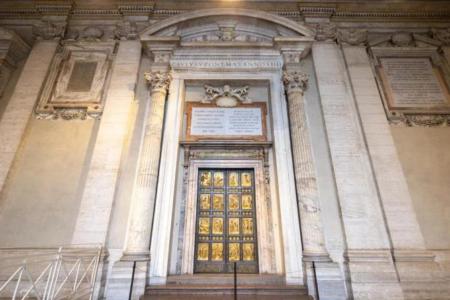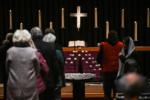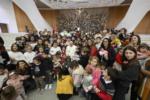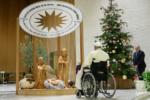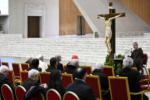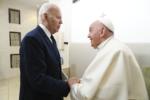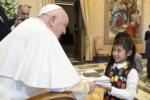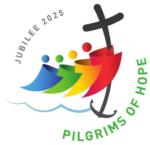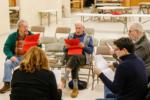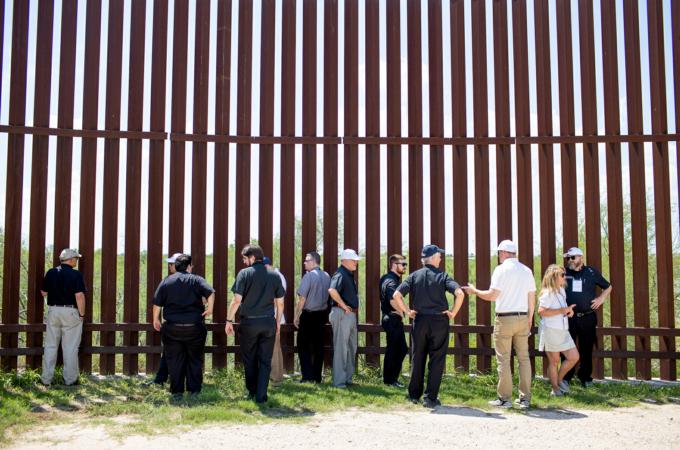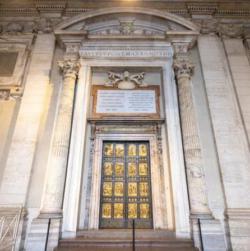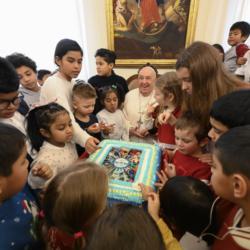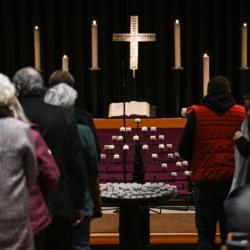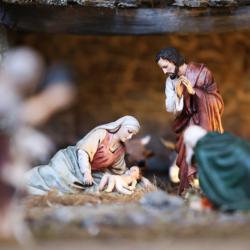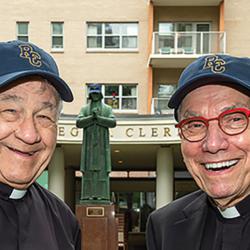Boston priests join trip to U.S.-Mexico border
BRAINTREE -- While it seems there has been a constant stream of news stories in recent months detailing the crisis at the U.S.-Mexico border, last month a group of Boston priests had an opportunity to see the situation there first-hand.
"We hear a lot about these things, we serve people who are going through these realities, but it's a different thing to hear a newscast, and it's a different thing to see it in reality," said Father Carlos Suarez Sept. 23.
Father Suarez was one of five Boston priests who joined a delegation of 22 people who visited the U.S.-Mexico border in Texas Sept. 16-18 to learn about the Church's ministries to migrants.
The trip was sponsored by Catholic Extension as part of its Mission Immersion Program. Father Suarez said it was the largest so far in a series of trips Catholic Extension has organized.
The purpose of these trips, he said, is to show priests, especially pastors, what immigrants experience so they can equip their parishes to better serve them.
"Part of the hope is not only to get the pastors exposed to it, but also get them to think, 'How can my people back home connect to these realities?'" Father Suarez said.
In addition to the Boston priests, the delegation included priests from Rhode Island, Cleveland, Chicago, Atlanta, and Louisville. Those attending from Boston were Father Suarez, who works with Hispanic ministries through the Office of Vocations; Father Alejandro Lopez-Cardinale of St. Benedict Parish in Somerville; Father Adrian Milik of St. Jude Parish in Waltham; Father Matt Conley of the Watertown Catholic Collaborative; and Father Elias Ojomah of Sacred Heart in Roslindale.
The three-day trip, which brought the priests back and forth over the U.S.-Mexico border, began Sept. 16 with a visit to La Posada Providencia, a long-term migrant shelter in San Benito, Texas, founded by the Sisters of Divine Providence. There, the group heard some of the residents' stories, including that of a father and son who had escaped from kidnappers less than 12 hours earlier. They also met a woman who fled political violence in Zimbabwe and is now pursuing her bachelor's degree and working as an assistant to the shelter director.
That night, the priests had dinner with Sister Norma Pimentel, executive director of Catholic Charities of the Rio Grande Valley, and Brownsville Bishop Daniel Flores, at which they learned about the diocese's work with migrants.
Father Suarez said Bishop Flores helped the visitors "put a human face on what is often a political or a news reality" and talked about the need to "remember we're talking about a humanitarian situation more so than a political one."
They learned from Bishop Flores that many illegal immigrants do not come over fences or places where the proposed border wall would be built, but over highways and bridges, hidden in trucks.
Father Suarez said the proposed border wall "is a good talking point, but it doesn't really solve the issue. As long as desperation remains, as long as opportunity remains here, it's going to continue. It has to be addressed in other ways," he said.
On Sept. 17, the priests visited and celebrated Mass in La Lomita, a historic chapel in Mission, Texas, that is in danger of being cut off from the U.S. by the proposed border wall.
Father Roy Snipes, OMI, nicknamed "the cowboy priest," took the priests on boat rides on the Rio Grande. Then, they visited Sister Norma's shelter, the Humanitarian Respite Center in McAllen, Texas, which provides temporary relief to migrants released from detention.
As a result of the Remain in Mexico Policy, which prevents asylum seekers from staying in the U.S. while their cases are considered, many shelters on the U.S. side of the border are emptier than they recently were. For this reason, the Humanitarian Respite Center has begun bringing supplies to families across the border in Matamoros, Mexico, where migrants wait in line to get an appointment with a judge. It can take a judge up to two years to decide whether their case merits asylum. The priests were not able to see the line but were told it consists of about 2,000 people, coming not only from Central American countries but also from Africa and Asia.
"Immigration is not just (an) issue for Hispanics. It's an international issue," Father Lopez-Cardinale said.
One thing Father Suarez found "jarring" was how expensive crossing the border can be, costing between $15,000 and $50,000. Most migrants either have family that are helping them pay, or are taking out a loan, which is "precarious because it kind of leaves them in an indentured condition."
After visiting Sister Norma's shelter, the priests went across the border to Reynosa, Mexico, where they were able to see both people preparing to cross the border as well as those recently deported, unsure of where to go next. In Mexico, they visited a medical clinic as well as a respite center run by the Sisters of Charity of St. Vincent de Paul.
Father Suarez said it was "inspiring" to see what the Church is doing in the midst of the immigration crisis.
"As much as we want to think politically, we need to think ecclesially, and (about) the responsibility we have for those that we share a life of faith with. It's a common baptism, it's a common faith, regardless of what side of the border you're on," he said.
On Sept. 18, the final day of the trip, they visited the Proyecto Desarrollo Humano, or Human Development Project, a community center run by the Missionary Sisters of the Immaculate Heart of Mary in Penitas, Texas. Their ministries include afterschool programs, a computer center, a medical/dental clinic, a sewing cooperative, and a thrift store. Many women who benefit from the project have husbands who were deported.
The priests also visited the community's church, St. Juan Diego in Citrus City, which inherited many of its fixtures from closed Boston churches. Its pews, main altar, and stone image of the Sacred Heart came from Holy Trinity Church in Boston, and its stained-glass windows came from Sts. Peter and Paul Church in Dorchester.
Father Milik remarked on how the windows came from an immigrant community in Boston and continued to serve a parish with a large immigrant population on the other side of the country.
"It was nice to see that the beauty, the faith and the prayers of the people who saw those windows for generations continue to go to communities gathering together to celebrate the Eucharist," Father Milik said.
In the days following their trip, the priests said they have been reflecting on their experience and praying about how to use and share the knowledge they gained.
Father Conley noted that the situation is "much more complicated than anybody thinks" as immoral people take advantage of the fact that so many vulnerable people are fleeing violence and poverty. He said he hopes people will research the issue and respond not only with emotion but also with logic.
Father Milik said, "With any system that is this large and this complicated, it's important to recognize that there will never be a simple answer. But any attempt at an answer we are going to be searching for has to begin by recognizing our need to love all people in every situation."
